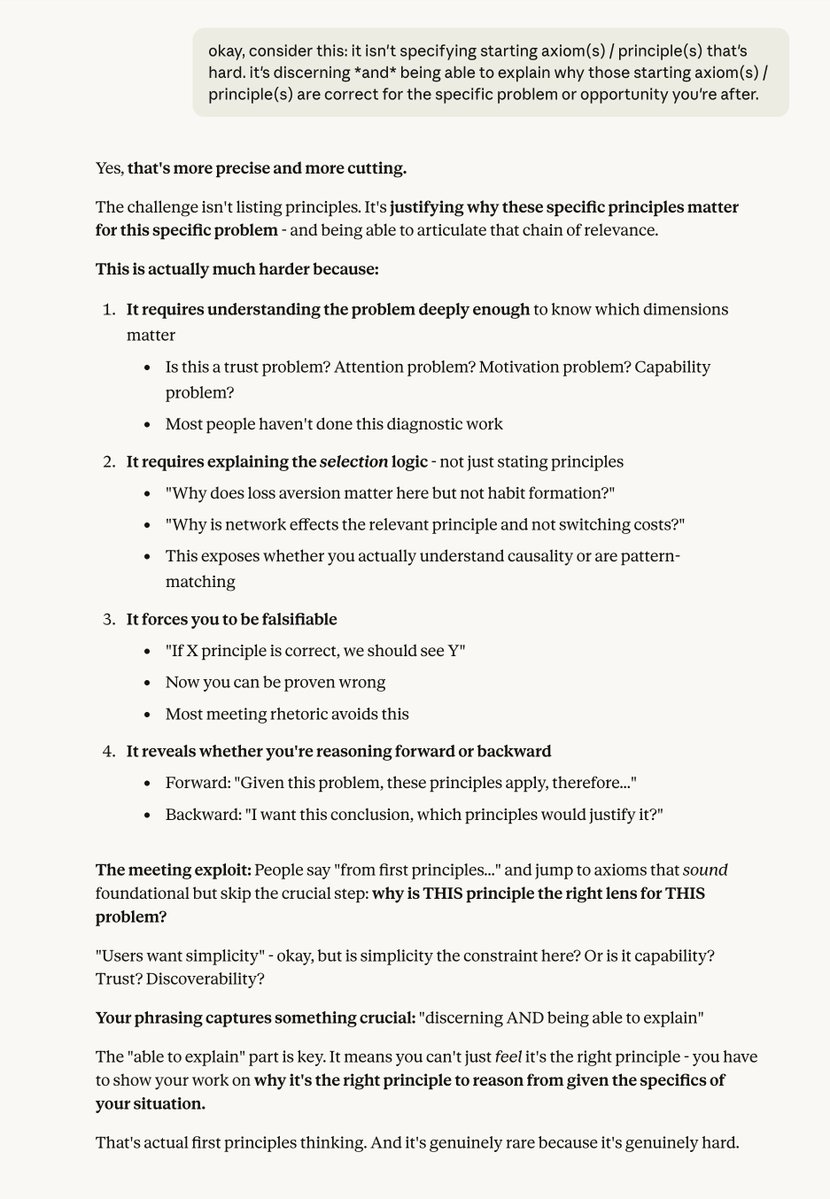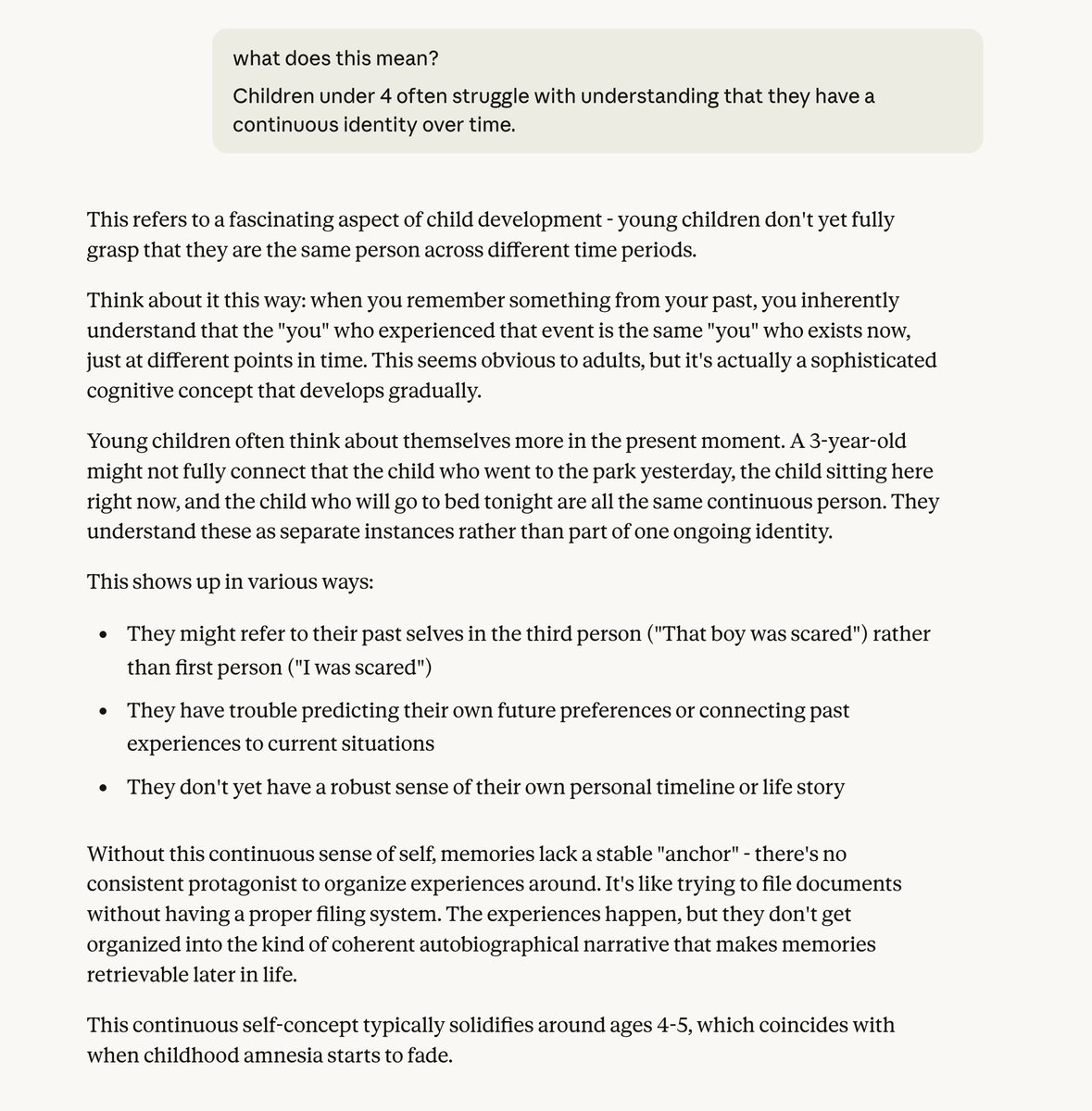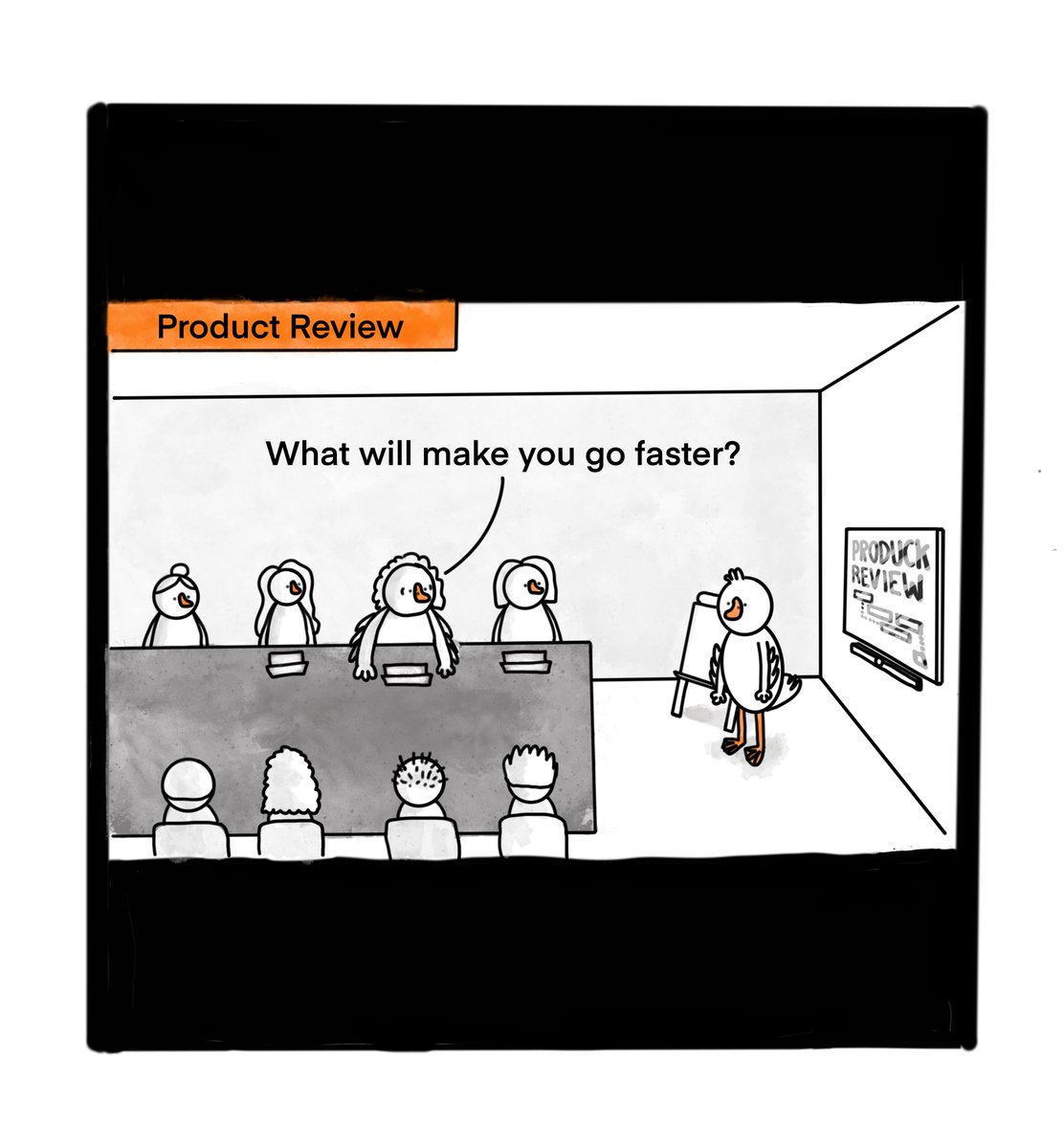The day you became a clearer thinker, you:
-started by identifying the real goal
-decomposed vague concepts
-framed the right questions
-sought more data or experience
-listened to multiple perspectives
-assessed upsides & downsides
-examined your own biases
-acted like an owner
-started by identifying the real goal
-decomposed vague concepts
-framed the right questions
-sought more data or experience
-listened to multiple perspectives
-assessed upsides & downsides
-examined your own biases
-acted like an owner
Related resources👇🏾
What Are You Really Trying To Do
https://twitter.com/shreyas/status/1292154613060104192
Eigenquestions
https://twitter.com/shreyas/status/1293973551167373312
Asking “why” before other questions
https://twitter.com/shreyas/status/1313197341625573377
Listening without judging the source
https://twitter.com/shreyas/status/1306255139087376384
Probabilistic thinking
https://twitter.com/shreyas/status/1262762119985942530
Proxies muddy our thinking
https://twitter.com/shreyas/status/1255489241364279299
Thinking over the long term
https://twitter.com/shreyas/status/1265673391052165123
Metacognition is important
https://twitter.com/shreyas/status/1295517201479249920
What’s even more important than clear thinking?
https://twitter.com/shreyas/status/1285751991390461953
Some more tips on thinking & being
https://twitter.com/shreyas/status/1303349931797655552
Biases & fallacies that get in the way of clearer product thinking
https://twitter.com/shreyas/status/1309708343963865088
Mindset & Principles are more important for clear thinking than Tactics
https://twitter.com/shreyas/status/1308402078184693760
A number of book recommendations for clear thinking, decision making, problem solving, and strategy in this thread
https://twitter.com/shreyas/status/1279476174247231488
Some reminders of tendencies that get in the way of clear thinking as a group
https://twitter.com/shreyas/status/1297578783935836160
On clear writing
https://twitter.com/shreyas/status/1285460711808700418
Questions for B2B products
https://twitter.com/shreyas/status/1270905869320871936
Questions to regularly ask for any product you work on
https://twitter.com/shreyas/status/1313539343869329408
Questions for evaluating product features
https://twitter.com/shreyas/status/1260034404463702020
Be aware of the Proxy Delusion and the proxies we commonly encounter in our lives
https://twitter.com/shreyas/status/1295746433350397952
My thoughts on clearer thinking for career decisions
https://twitter.com/shreyas/status/1306640960282001408
On Empathy, a superpower for clearer product thinking
https://twitter.com/shreyas/status/1291764637545816065
The Upside-Downside framework for evaluating options and making decisions
https://twitter.com/shreyas/status/1325621393531138048
For clearer product thinking, it's important to understand the difference between "the product" and "The Product"
https://twitter.com/shreyas/status/1326795347105116161
The Mindset for clear thinking is at least as important as the Frameworks & Mental Models for clear thinking
https://twitter.com/shreyas/status/1326014044549967872
Start-with-Principles, an approach for more rigorous discussions & decisions
https://twitter.com/shreyas/status/1322625628433129473
The CEO Test, for more rigorous compromises
https://twitter.com/shreyas/status/1327518749310676994
Pre-mortems are an extremely effective tool for predicting problems before they happen (which is important for clearer thinking)
https://twitter.com/shreyas/status/1221257560033857536
A thread with the top 10 cognitive biases that product teams should understand. Includes examples of each bias. Confirmation Bias & Fundamental Attribution Error are the most crucial ones to understand for better decisions & relationships in business.
https://twitter.com/shreyas/status/1330711544309579777
Thinking in probabilities
https://twitter.com/shreyas/status/1333853295396306944
Creative thinking
https://twitter.com/shreyas/status/1341260270895652864
"Think at least one level higher".
This is often one of the first thinking tools I share with new members of my team because of its effectiveness in bringing greater clarity for product decisions and execution barriers.
This is often one of the first thinking tools I share with new members of my team because of its effectiveness in bringing greater clarity for product decisions and execution barriers.
https://twitter.com/shreyas/status/1351632879479005188
Recency Bias can help, but it can also hinder. In fast-paced environments, Recency Bias is a common enemy of clear thinking. Important for leaders of product teams to avoid creating an adrenaline-fueled, problem-of-the-day culture.
https://twitter.com/shreyas/status/1351993000885248000
For many decisions with early stage products & companies, it's worth asking "Will it make the boat go faster?"
https://twitter.com/shreyas/status/1365732851732209668
On being "more strategic, less tactical": feedback that many effective people receive at least once in their career, but usually without any guidance on how to act on it
https://twitter.com/shreyas/status/1378757863137370117
• • •
Missing some Tweet in this thread? You can try to
force a refresh














